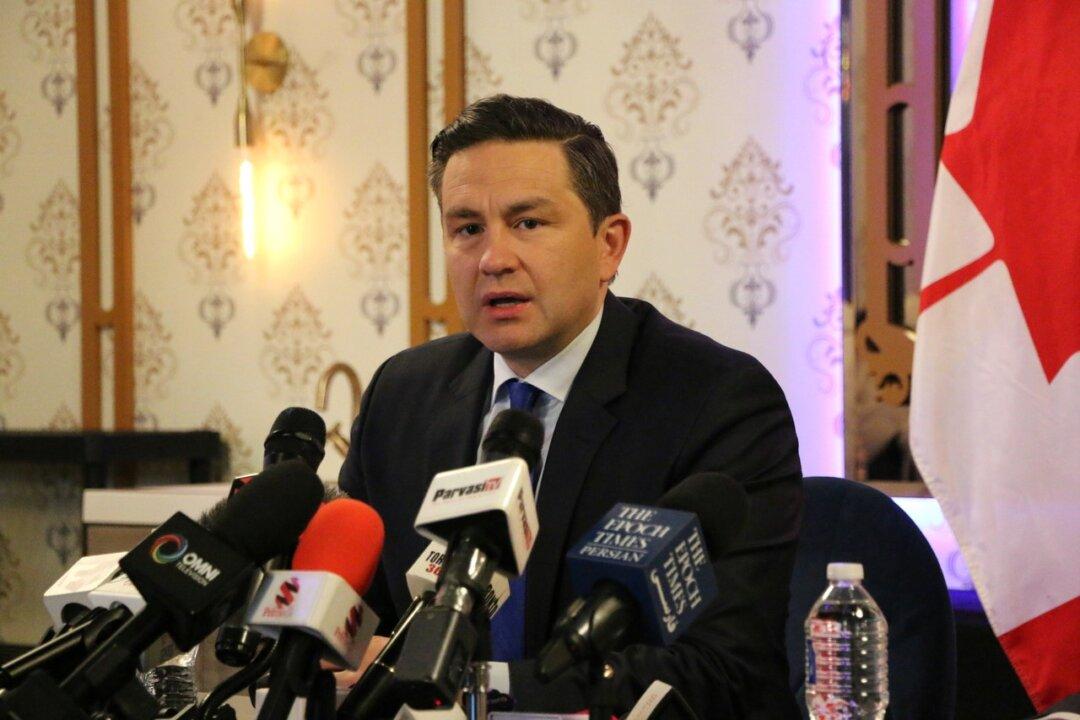BRAMPTON, Ont.—Conservative Leader Pierre Poilievre said Canada’s public inquiry into foreign interference had gotten off to “a very bad start” as a human rights group withdrew its participation and the Tories were denied full standing.
The inquiry, focused on probing alleged election meddling, concluded its first set of public hearings last week.





